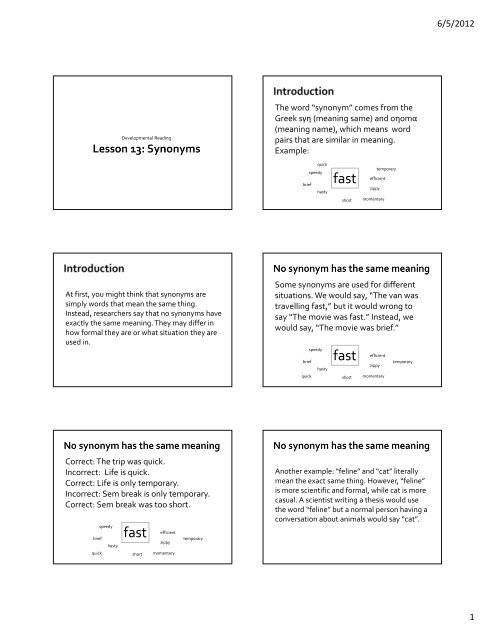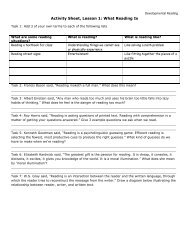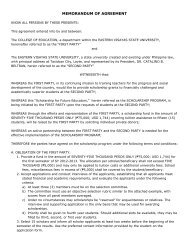PDF handout of the 32 Powerpoints - Mark Fullmer
PDF handout of the 32 Powerpoints - Mark Fullmer
PDF handout of the 32 Powerpoints - Mark Fullmer
You also want an ePaper? Increase the reach of your titles
YUMPU automatically turns print PDFs into web optimized ePapers that Google loves.
6/5/2012Developmental ReadingThe word “synonym” comes from <strong>the</strong>Greek sγη (meaning same) and οηοmα(meaning name), which means wordpairs that are similar in meaning.Example:quickspeedybriefhastyfastshorttemporaryefficientzippymomentaryAt first, you might think that synonyms aresimply words that mean <strong>the</strong> same thing.Instead, researchers say that no synonyms haveexactly <strong>the</strong> same meaning. They may differ inhow formal <strong>the</strong>y are or what situation <strong>the</strong>y areused in.Some synonyms are used for differentsituations. We would say, “The van wastravelling fast,” but it would wrong tosay “The movie was fast.” Instead, wewould say, “The movie was brief.”briefquickspeedyhastyfastshortefficientzippymomentarytemporaryCorrect: The trip was quick.Incorrect: Life is quick.Correct: Life is only temporary.Incorrect: Sem break is only temporary.Correct: Sem break was too short.briefquickspeedyhastyfastshortefficientzippymomentarytemporaryAno<strong>the</strong>r example: “feline” and “cat” literallymean <strong>the</strong> exact same thing. However, “feline”is more scientific and formal, while cat is morecasual. A scientist writing a <strong>the</strong>sis would use<strong>the</strong> word “feline” but a normal person having aconversation about animals would say “cat”.1







